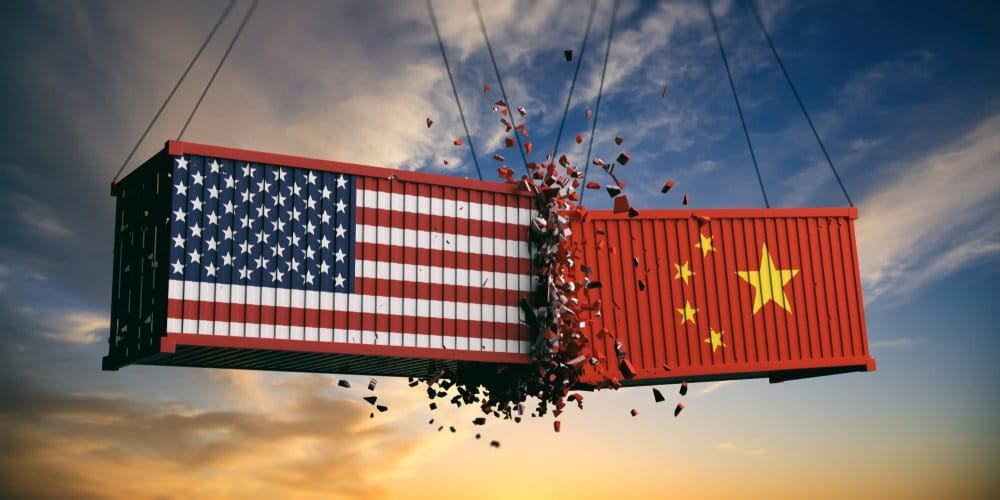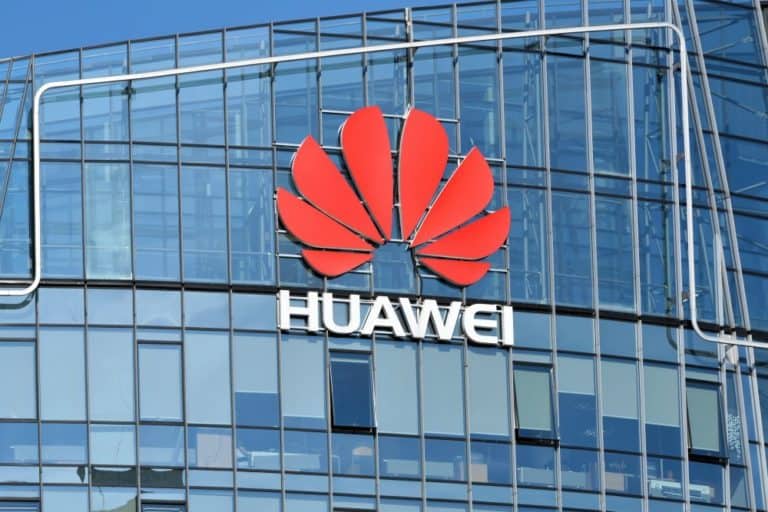U.S. President Trump has shown his cards. Huawei has to die. The only thing that can still save the Chinese company could be presidential candidate Joe Biden, a major retaliation from the Chinese government, which forces Trump to revise his policy or maybe the EU? If Huawei collapses, it not only means damage to the company and it’s employees but also for many suppliers and many European companies and consumers.
Last Monday, President Trump may have dealt the final blow to Huawei. The Chinese company is now completely isolated from current chip technology. We have written about Huawei’s precarious situation before on several occasions, thinking it couldn’t get much worse. Over the past few days, Huawei has been pushed further towards the edge of the cliff. The end could be near.
There was already a ban for American companies to do business with Huawei, although there were a few exceptions. Companies such as Intel, Google and Microsoft were still allowed to do limited business with the Chinese company with a special license. For example, Intel supplied processors to Huawei for its PC and data center division. Google provided security updates for Android (no new Android versions) and Microsoft provided software licenses. Those temporary licenses to do business with Huawei expired on August 13th. This has happened before, and they were extended by the U.S. government several times, now it looks to be final, with no extension in sight.
Trump introduces complete Huawei ban
Huawei has been under pressure from the U.S. government for over a year now. Huawei already recognized last year that the relationship with Intel might be limited. It, therefore, invested heavily in its own chip designs. Huawei’s Kunpeng chip is powerful enough to take over Intel’s work.
The Kunpeng chip has not escaped the U.S. either, which is why a ban was imposed in which companies were no longer allowed to produce Huawei chip designs with American software or technology. It meant that TSMC, Huawei’s primary chip manufacturer, had to cease production. Huawei did come up with a way to circumvent this ban. Huawei started by ordering MediaTek chips, which were not designed by Huawei and could still be produced and delivered. However, last Monday, Trump introduced a new rule to the ban. In short, no semiconductor (chip) may be built or manufactured with American software or technology and then used by Huawei to create a product. It means that Huawei is now cut off from any current modern chip technology.

Retaliation from China in 3, 2, 1…
The most obvious thing to happen now is a retaliation from China against the U.S.. At Bloomberg they call it the nuclear bomb that Trump fired at Huawei. The Chinese government has to respond because the future of one of the largest Chinese companies is as stake.
If the U.S. would destroy a European company in this way, think of Shell, Volkswagen, ING, Siemens or Bosch, we would also like to see retaliation from European politicians. After all, it leads to enormous economic damage. Or what to think of the jobs that would be lost. Huawei has 194.000 employees worldwide, including thousands in Europe.
As far as we are concerned, the question is not whether the Chinese will retaliate, but when. The Chinese have a huge share in the supply industry of the United States, not to mention the share in the national debt of the U.S. We believe there is a good chance that the Chinese will take appropriate measures towards the U.S. economy. Many products in the United States will then become considerably more expensive as a result.
Huawei is not ready to respond to questions
We sent a dozen questions to our contacts at Huawei. We would like to know what the board’s plans are. How do they see the future, what will be the consequences for new products and the support on existing products and contracts. Huawei has informed us that the response to these must come from their headquarters in China. At this time, they have not received any statement, so they can’t tell us anything. We hope this will change in the upcoming days.
What or who can still save Huawei:
We’ve listed some scenarios that, in our view, could still save Huawei.
China could retaliate hard, which could force Trump to revoke the ban.
The Chinese are probably working on a plan to retaliate, and do similar damage to the U.S. economy or some U.S. companies. If China manages to achieve something that really gets the United States into trouble, there is a chance that Trump will abandon his current mission to destroy Huawei.
The question remains, how far is China willing to go in retaliation. We suspect that China is willing to go further and further, now that not only Huawei but also Tiktok is under a magnifying glass and there are threats to attack more Chinese companies, including Alibaba. At the end of the day, it is all about world domination.
Read also: To stop China’s world domination, Huawei has to die
Ultimately, China itself also suffers from retaliation against the U.S. because the export of products to the United States will decrease. That is why China will think carefully about how to retaliate.
South Korea or Europe can put pressure on the United States
Not only China and Huawei suffer from the current restrictions that the United States have put in place. The European and South Korean economies are also under pressure. Samsung and SK Hynix generate 20 and 40 percent of their revenue from chip sales in China, where Huawei is one of the biggest customers. Those companies are now missing out on billions of revenue.
In Europe, a large number of companies and consumers use Huawei smartphones, but there are also companies with complete data centers and mobile networks that use Huawei technology. Support for these products is going to be extremely difficult. A lot of software can no longer be updated if there are security vulnerabilities, while defective hardware can no longer be replaced because Huawei can no longer purchase chips. Huawei still has some stock in their warehouses at the moment, but that stock will decrease rapidly in the coming weeks.
It means that European companies will suffer damage as a result and may run an increased risk of hacks or data leakage.
This is a risk for both South Korean and European governments. They need to protect their economies and could put pressure on the U.S. The question is whether they want to do that.
Sell Huawei to Chinese/European consortium
China will probably not allow Huawei to be sold completely to a European company or consortium. What might be possible, however, is a strategic partnership at a high European and Chinese level, in which a European consortium becomes a major shareholder of Huawei (e.g. 50%). It could even move its headquarters to Switzerland or a European member state, thus creating a clearer separation between China and Huawei, but at the same time allowing both China and Europe to benefit from Huawei technology. Huawei would be a great asset for Europe, because Europe has a huge shortage of large powerful technology companies, as we described earlier. For China, the advantage is that Huawei will not die, a major part of the company remains Chinese, and they will continue to benefit from that technology. The question is whether Europe and China are willing to facilitate some type of joint-venture. For Europe, the relationship with the US would suddenly look very different.
Joe Biden
There will be elections in the United States in November of this year. The outcome of those elections cannot be predicted, but there is a chance that Trump will no longer be president in early 2021. In that case, he will be succeeded by the Democrat Joe Biden. In theory, Biden can lift the restrictions, but based on Biden’s statements he is not a big fan of China and Chinese companies. He also prefers a harsh policy against China. Huawei shouldn’t put its hopes on Biden.
Desperately looking for a way out
Huawei’s despair is at hand. The company needs a way out to keep the company afloat. Most Huawei products can no longer be produced. In the short term, it can fire thousands of employees and close down many offices, factories and research centres, because that does not help. As long as they can no longer produce and therefore sell anything.
The alternatives are slim. There are some Chinese companies that design and produce chips without U.S. technology. However, the semiconductor industry in China is still relatively new and lags years behind where the current market is. It will take years and billions of euro’s to build that industry. Huawei simply doesn’t have that much time.
For now, we need to wait for a statement from Huawei, in which they make clear what the consequences will be for the company and how they intend to deal with the current situation.
Tip: Should Europe compete for technological world domination?
